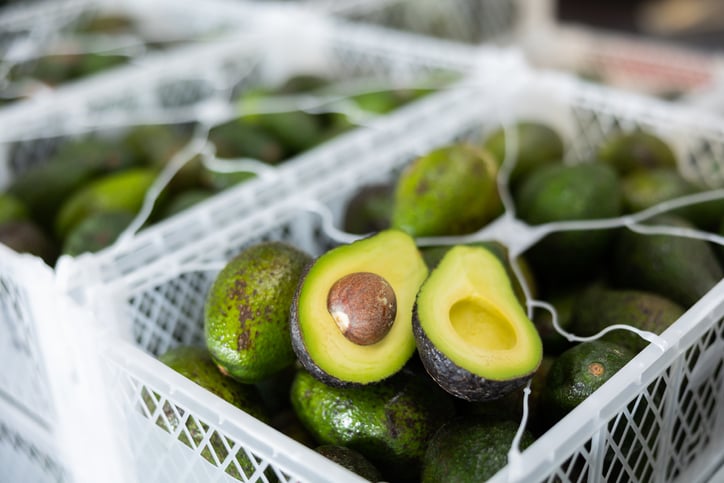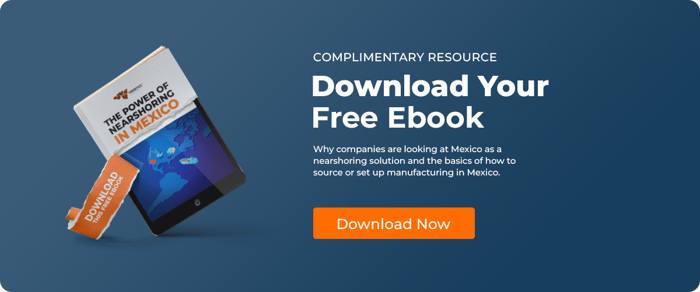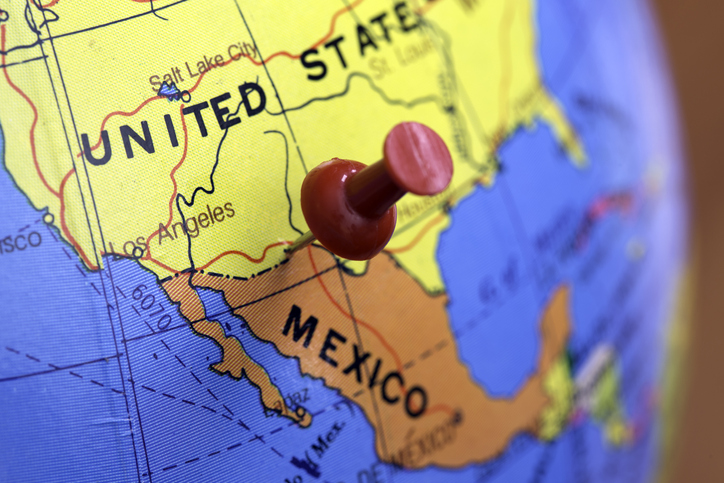Cross border logistics have always been an important aspect of international trade, and one area where it has been particularly challenging is in the transportation of perishable goods. One such good is the avocado, which has become increasingly popular in the United States over the past decade. Mexico is the largest supplier of avocados to the US, and as such, avocado shipping from Mexico has become a critical component of the food supply chain.
The Avocado Industry in Mexico
In this article, we will explore the process of avocado delivery from Mexico to the US, including the regulations governing shipments, the safety measures taken to ensure the fruit arrives in good condition, and the cost considerations involved. By understanding the challenges and opportunities involved in avocado shipping, we can gain a deeper appreciation for this essential component of the global food market.
Mexico is the largest supplier of avocados to the United States, with over two billion pounds of avocados crossing the border each year. To put this into perspective, in 2017 alone, 1.93 billion avocados entered the United States avocado market. This massive quantity translates to 1.73 billion pounds of avocados consumed by Americans each year, which means that on average, each American enjoys approximately 5 Mexican avocados annually. The sheer weight of these imported avocados from Mexico amounts to an impressive 784,714 metric tons.
Understanding the magnitude of avocado imports from Mexico is vital, as it highlights the necessary role that importing plays in meeting the growing demand for this beloved fruit in the United States. With the United States' affinity for avocados rising each year, it is essential to recognize the sheer volume and weight of avocados that are imported to keep up with this demand. This information sheds light on the significance of Mexico's contribution to the US avocado market and underscores the importance of efficient shipping processes, stringent regulations, and safety measures in ensuring that these avocados arrive in pristine condition.
The Regulatory Framework
The avocado shipping process from Mexico to the United States is subject to a comprehensive regulatory framework designed to ensure the safety and quality of the fruit. It is crucial for avocado shippers to understand and adhere to these regulations to facilitate the smooth cross-border logistics and delivery of avocados. The regulatory landscape is overseen by key governmental bodies such as the United States Department of Agriculture (USDA), Customs and Border Protection (CBP), and the Food and Drug Administration (FDA).
Under this regulatory framework, regulations cover a wide range of aspects, including the packaging and labeling of avocados. When importing avocados, the fruit must be packaged in clean boxes or packing crates. Additionally, they must be labeled and provide the following information:
- Grower
- Packinghouse
- Exporter
Generally, they must also be transported using a sealed, refrigerated container or truck. These packaging standards are critical for maintaining the sanitation standards of processing facilities, and the overall quality of the fruit being imported. Compliance with these regulations is not only important for the successful transport of avocados but also for ensuring consumer safety and maintaining the integrity of the supply chain.
Failure to comply with these regulations can result in serious consequences for avocado shippers, including fines and the confiscation of goods. Therefore, it is essential for shippers to navigate the regulatory requirements diligently and with attention to detail. By following the guidelines set forth by the USDA, CBP, and FDA, avocado shippers can help guarantee the safe and efficient transportation of their products across the border, benefiting both producers and consumers alike.
Compliance and Enforcement
Compliance and enforcement are critical components of the avocado shipping process from Mexico to the United States. To ensure compliance with regulations governing cross-border logistics and the delivery of avocados from Mexico, avocado shippers must work closely with regulatory agencies to ensure the safe and efficient transport of their product. This includes providing detailed documentation regarding the origin, quality, and handling of the fruit, as well as complying with inspections and audits conducted by regulatory agencies.
In this intricate process, the role of a Licensed Customs Broker becomes indispensable. Customs brokers specialize in navigating the complex web of import regulations and partner government agency requirements, such as those from the USDA, which are crucial when importing avocados into the U.S. They ensure that all shipments of avocados are compliant with federal standards concerning packaging, labeling, and necessary documentation like phytosanitary certificates. Furthermore, customs brokers assist in accurately classifying goods under the correct Harmonized Tariff Schedule (HTS) codes, which is essential for determining the appropriate import duties.
Customs brokers also monitor the compliance of avocado shipments with specific grade and maturity requirements, ensuring that every batch meets the U.S. market standards. Their expertise extends to facilitating smoother transactions at border crossings and processing facilities by preemptively addressing potential non-compliance issues, thus avoiding delays and possible penalties.
Regulatory agencies play an important role in enforcing these regulations, including conducting inspections at border crossings and processing facilities to ensure that avocados meet the required standards for safety and quality. In cases where non-compliance is detected, regulatory agencies may impose penalties or even suspend the shipment of avocados until compliance is achieved.
As such, the collaboration between avocado shippers, customs brokers, and regulatory agencies forms a critical nexus that ensures the safe and efficient delivery of avocados from Mexico to the U.S. For avocado importers, engaging a knowledgeable customs broker is not just an option but a strategic necessity to navigate the complex regulatory environment and to expedite the importation process effectively.
In addition to working closely with regulatory agencies, avocado shippers must prioritize adherence to the Food Modernization Safety Act (FMSA) regulations. Implemented in 2017, the FMSA mandates strict guidelines to uphold food safety standards during transport. These guidelines include maintaining clean vehicles that can be easily sanitized to prevent contamination, ensuring avocados are stored at safe temperatures throughout transportation, and providing necessary training for carriers. Documentation of compliance with these regulations is essential to avoid delays in the customs clearance process. It is imperative to note that the CBP will not release avocado shipments without proper adherence to the required paperwork and safety guidelines. Therefore, meticulous attention to detail and proactive compliance measures are essential to navigate the complex regulatory landscape of avocado imports into the United States.
Challenges in the Shipping Process
The avocado shipping process from Mexico to the United States is subject to several challenges that must be carefully managed to ensure the safe and efficient delivery of the fruit. One of the biggest challenges is ensuring that the avocados arrive in good condition, given their perishable nature. This requires careful handling, temperature control, and packaging to ensure that the fruit remains fresh throughout the journey. Additionally, navigating the regulatory landscape can be challenging, as compliance with the numerous regulations governing the avocado shipping process can be complex and time-consuming. Other challenges include managing the cost of cross border logistics and complying with increasingly stringent safety and quality standards. Despite these challenges, the avocado industry in Mexico has risen to the occasion, investing heavily in infrastructure and technology to ensure that the shipping process is as safe, efficient, and reliable as possible.
The Future of Avocado Shipping from Mexico
The future of avocado shipping from Mexico to the United States is poised for continued growth and innovation. The increasing demand for avocados in the US, combined with the growing awareness of the importance of safe and sustainable cross border logistics, is driving continued investment in the industry. This includes investments in new technologies that will allow for more efficient handling, packaging, and transportation of avocados, as well as continued investment in the infrastructure needed to support the shipping process.
The industry is also likely to face ongoing regulatory changes, as safety and quality standards continue to evolve. As such, avocado shippers must remain vigilant and adaptable, continuing to invest in the people, processes, and technology needed to ensure the safe and efficient delivery of avocados from Mexico to the US. Despite the challenges, the future of avocado shipping from Mexico is bright, and the industry is well-positioned to continue meeting the growing demand for this popular fruit.
Partner with Visigistics for Your Shipping Needs
If you're looking for a reliable partner to help with your shipping needs, the team at Visigistics is here to help. With decades of experience in logistics and a commitment to excellence, we can help you navigate the regulatory landscape and manage every aspect of the avocado shipping process. So, whether you're an avocado grower in Mexico or a US-based importer, we invite you to reach out to our team to learn more about how we can help you with all of your shipping needs.
Frequently Asked Questions:
What are the requirements under the Food Modernization Safety Act for avocado transport?
Under the Food Modernization Safety Act, there are specific requirements for the transport of avocados. Firstly, vehicles used for transporting avocados must be maintained in a clean condition to prevent contamination. They should also be designed in a way that allows them to be easily cleaned to ensure that the avocados remain free from any harmful substances. It is crucial that avocados are stored and transported at appropriate temperatures to maintain their quality and safety during transit. Carriers involved in the transportation of avocados must undergo proper training to ensure they understand the necessary protocols for handling this perishable product. Documentation of compliance with these regulations is essential, as the food may not be released by customs authorities without the required paperwork and adherence to safety guidelines mandated by the Food Modernization Safety Act.
Are avocados banned in the U.S.?
Are avocados banned in the U.S.? The short answer is no, avocados are not banned. However, there was a brief interruption in avocado imports from Mexico in early 2022. Let's clarify what actually happened.
A Brief Suspension
On February 11, 2022, U.S. authorities paused the importation of avocados from Mexico. This action was a response to a security concern involving a U.S. inspector.
Quick Resolution and Lifting of the Ban
The suspension lasted just a week. By February 18, the issue had been addressed sufficiently. U.S. officials, cooperating closely with their Mexican counterparts, implemented enhanced safety protocols for inspectors working in Mexico. Following these adjustments, the temporary ban was removed, and the import of avocados resumed.
Current Status
Today, avocados from Mexico are available in the U.S. market. The temporary ban was an isolated incident, not an ongoing restriction. Safety measures are in place to protect inspectors and ensure a steady supply of avocados.
How much does it cost to import avocados to the U.S.?
Import Duties and Agreements
When importing avocados into the United States, a standard import duty of 11.2 cents per kilogram applies. However, this can vary depending on the country of origin due to specific trade agreements. The U.S. has exempted several nations like Peru, Chile, Colombia, and the Dominican Republic from these duties under various trade agreements. Unfortunately, avocados imported from Mexico don't benefit from these exemptions and are subject to the standard duty rate.
Factors Influencing Prices
The final cost of importing avocados isn't solely dependent on import duties. It also hinges on:
- The chosen supplier
- The volume of avocados being imported
- The country of origin, which can affect both the base cost and shipping costs
- The origin and final destination affect the shipping costs
In early 2022, a temporary ban on Mexican avocado imports temporarily drove up costs due to reduced supply. Additionally, ongoing challenges such as supply chain disruptions and port congestion have compounded these effects, pushing prices higher.
Current Market Prices
The impact of these factors became notably visible in the retail sector. For example, from January 2022 to March 2022, the average retail price of avocados in the U.S. escalated from $1.05 to over $1.30. This increase reflects the compounded effects of duty charges, international trade policies, and logistic hurdles.
Additional Considerations for Organic Avocados
If you're looking to import organic avocados, be prepared for additional regulations and possibly higher costs. The U.S. imposes specific standards and certification requirements for all imported organic foods, including avocados. These might involve further costs and compliance measures.
Summary
The expense of importing avocados to the U.S. is influenced by a blend of import duties, trade agreements, choice of supplier, and logistical issues. Prices fluctuate significantly based on these variables, making it essential to stay informed on current economic conditions and trade policies. For those planning to import organic avocados, understanding the additional requirements is crucial to ensuring compliance and managing costs.
What are the phytosanitary regulations for importing avocados?
When importing avocados into the United States, there are specific phytosanitary requirements designed to prevent the introduction of harmful pests and diseases. These safeguards are critical to maintaining the health of domestic agriculture and ecosystems.
Required Documentation
All avocado shipments entering the US without exception must have valid phytosanitary certificates. This documentation certifies that the avocados have been inspected in their country of origin and meet all necessary health and safety standards.
Listed Countries
Several countries are recognized for their avocado exports and must comply with these strict regulations. The countries included are:
- Chile
- Mexico
- New Zealand
- Peru
- Spain
Each of these countries has agreed to adhere to the U.S. phytosanitary standards, ensuring that their avocados are free from pests and diseases before export. By complying with these regulations, they help maintain a smooth and safe trade relationship with the U.S.







